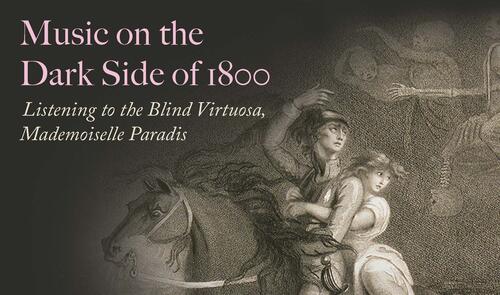
Music on the Dark Side of 1800: Listening to the Blind Virtuosa, Mademoiselle Paradis
Thursday, March 28, 2024
5:30 pm
Yale University Art Gallery, Robert L. McNeil, Jr. Lecture Hall, 1111 Chapel St, New Haven, CT 06510
will be delivered by Annette Richards, Given Foundation Professor in the Humanities and University Organist, Cornell University
In concerts across Europe in the 1780s, the young Viennese virtuosa Maria Theresia Paradis made blindness visible, even audible. Her performances invited listeners and viewers primed by horror ballads and literary romance to experience her story of trauma and misfortune within the frame of fictional narratives of doomed innocence and victimized Gothic heroines. Yet her outspoken views on blindness, informed by her own experience and contemporary philosophical discourse (by Diderot, Condillac, and Herder, among many others) explicitly resisted the language of victimization, even as she sold pity for profit. This lecture brings to sounding life the Paridisian contradiction between performing disability for money and resisting pity. It asks what 18th-century music culture can tell us about contemporary views on blindness and explores the ways the public performances of a young female virtuoso simultaneously embraced and critiqued a culture of gawking spectatorship, freak show aesthetics, and the ethics and economics of pity. How did this Gothic musical heroine capture the public imagination, and what does she reveal about how music looked and sounded on the dark side of 1800?